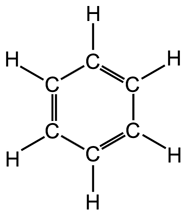One of the potential sources is the Marcellus Shale, a geological formation that stretches from New York State down through West Virginia. The Marcellus (named after a town in western New York where the "type section" was identified) was laid down in the Devonian era, 350 million years ago.
It is a black shale deposited in deep water when North America was splitting off from a supercontinent to the east. Decomposing plant and animal life was eventually converted to "natural gas," mostly methane, trapped within its layers.
In order to extract the gas in marketable quantities energy companies use a process called fracturing, or "fracking." Certain fluids and a type of sand are pumped into drilled shafts to fracture the rock, and find their way into every nook and cranny. When the fluid is extracted, the crevices remain, help open by the sand that is introduced. Then the gas can be pumped up the surface in marketable quantities.
(Above: section of the Marcellus Shale--darker layers in upper right)
But here's the rub: the companies who are drilling for gas in the Marcellus and other formations like it are hush-hush about the fluid used in fracking. After all, they are independent companies in competition with each other, and their trade secrets are proprietary information.
There is mounting evidence, however, not just from environmental bureaucrats but from landowners whose well water has been affected, that fracking fluid is contaminating local aquifers. Worse yet, it seems that in some cases the fluid contains benzene, a known carcinogen.
(Formula for benzene C6H6. Each carbon shares two hydrogens with the one adjacent to it, in a conformation known as a "benzene ring.")Major urban centers like New York City and Philadelphia draw their water supplies from areas underlain by the Marcellus Shale. The potential problem is so great that even the state of Texas is now considering legislation requiring energy companies to reveal the nature of the fracking liquids they are using.
There is no doubt that the Marcellus contains enough untapped energy to alleviate greatly the country's dependence on foreign oil in future years. But it is also essential to maintain and safeguard a viable source of fresh, potable water for an expanding urban population.
Even a small amount of organic hydrocarbons (like benzene) can pollute an aquifer more or less permanently. Just ask anyone who has (or had) a well anywhere near a gas station with a ruptured or abandoned underground fuel tank. It's there, you can smell it, you can taste it, but you had better not drink too much of it.
Regardless of what kind of public relations "spin" energy companies put on the situation, good water is a basic necessity of human life, moreso than cheap, or even moderately cheap energy. Poisoning the aquifers is not an acceptable price. In the meantime the world awaits that clever engineer who will find a way to frack shale using a non-toxic method, and will surely beat a path to his door.




No comments:
Post a Comment